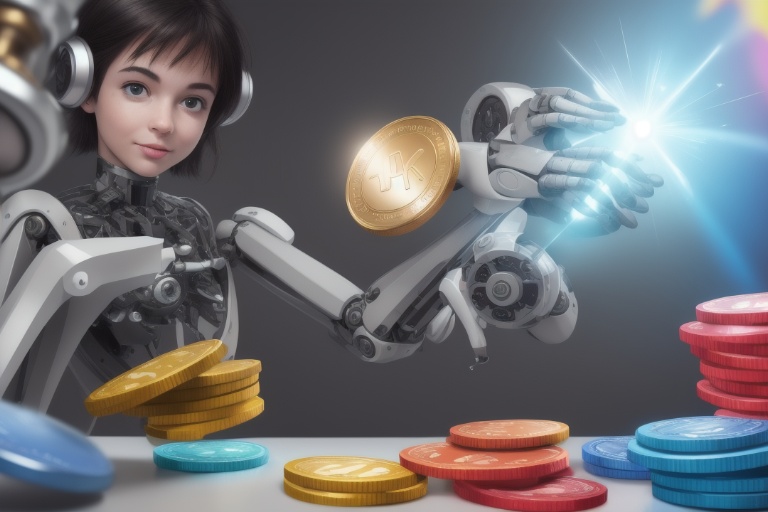The onward march of artificial intelligence (AI) has been making headlines across the globe, with its many promises of revolutionizing how we work, live, and understand our economy. However, with any great technological advancement comes a suite of complex implications that need careful consideration, particularly when it comes to the impact on societal structures and the economy.
The onward march of artificial intelligence (AI) has been making headlines across the globe, with its many promises of revolutionizing how we work, live, and understand our economy. However, with any great technological advancement comes a suite of complex implications that need careful consideration, particularly when it comes to the impact on societal structures and the economy.
Economic Landscape Transformed by AI
Economists are increasingly shining a light on the potential for AI to deepen economic divides. As AI technologies become more sophisticated, they raise the question of how to balance the scales between capital owners and workers. This tension isn't new; it's been building over recent decades. Workers worldwide have seen their slice of the income pie shrink, while productivity growth has languished despite the rise of information technologies and automation that promised to bolster it – a conundrum referred to as the Solow paradox.
Now, the big question on everyone's mind is this: Can AI be the hero that lifts productivity out of its stalemate? And if so, who stands to gain from this resurgence? While consulting firms often tout AI as the economic elixir for all our woes, policymakers are far more circumspect, voicing concerns about job displacement.
The Paradox of Proliferation
AI is not like the behemoths of change we’ve seen before, such as the steam engine or the personal computer. Unlike these tangible technologies, AI's primary footprint is in the digital realm, its software easily disseminated and adopted at an incredibly low capital cost. It represents a leap forward that could diffuse through the marketplace with unprecedented speed.
AI’s Ripple Effects
With AI's capacity to touch virtually every facet of our lives, from education to international trade, it stands to reshape industry norms and economic foundations. Predicting such changes, however, is a daunting task – one that the field of economics is grappling with because it involves unprecedented levels of complexity and uncertainty. Economists, therefore, cannot offer firm predictions about AI's economic repercussions.
AI and Inequality
A consensus seems to be emerging among economists that AI is likely to exacerbate inequality. The benefits of AI could shift further towards capital owners, simultaneously weakening labor's bargaining power and eroding the tax base governments rely on to redistribute wealth. While AI isn't expected to slash overall employment, it is anticipated to disrupt income distributions, particularly disadvantaging low-skilled labor, thereby extending inequality's reach even further.
International Inequality and AI
Moreover, as AI redefines employment and trade, it may magnify disparities not just within nations but also between them. One avenue to manage the whirlwind arrival of AI could be to temper its deployment, which would afford more time for adjustment to the populations that it negatively affects.
Policy Responses to AI’s Rise
In the face of automation and AI's ascent, governments have a window of opportunity to tackle economic disparities by targeting the inequality of opportunities. By pursuing proactive policy measures, the negative impact of AI could be mitigated, fostering equitable access to the resources it can unleash.
The Human Element Amidst AI
We must not overlook the intrinsic value that humanity brings to the economy. As economist Jeffrey Sachs points out, our strength lies in our very humanity – an asset beyond the reach of robotics and AI. Traditionally, humans have been the core of labor and critical decision-making in economic terms. AI’s rapid progress raises vital questions about the future role of humans in an automated world.
Advancing Economies in the AI Era
With AI's potential to enhance productivity and stimulate economic growth, economists and governments alike must appreciate the challenges it poses, particularly concerning increasing inequality. It is critical that governments establish policies that ensure that AI's benefits are widely shared and that we safeguard the unique contributions of human capital.
Rethinking Humans in Economics
The AI revolution urges economists to craft more sophisticated models that better capture the complex roles of humans and AI as economic agents. As American economists David Parkes and Michael Wellman have observed, a world inhabited by AI agents might adhere closer to classical economic theory due to their more predictable rational behavior. These observations necessitate a deeper exploration of the new economic dynamics introduced by AI. Will AI agents become independent players in our economic theory? These are fundamental questions that must be addressed as we march toward an inevitable transformation.
AI in the Economic Tapestry
In the tapestry of programming, artificial intelligence, and machine learning, the economic strand is but one of many, yet it is exceedingly important. Staying on top of AI developments, understanding how to utilize tools like AI art generators or conversational bots, and keeping abreast of the latest research like Yingying Lu's detailed examination in The Conversation of AI's relationship with the economy are all part and parcel of navigating the new normal that AI brings.
As we bravely venture into this new frontier, it is through our nimbleness and capacity to harness these technologies that the full promise of AI will be realized. While the landscape is shifting under the weight of these advancements, it is our collective acumen and response that will dictate the path ahead, ensuring economic models evolve in lockstep with AI's capabilities.
The future posited by the rise of AI is one filled with profound possibilities and unavoidable challenges. In the pursuit of equitable growth, it's critical that governments, economists, and society at large remain vigilant, proactive, and adaptive to ensure that the benefits of AI are maximized for all, not just a select few. The narrative of AI and its societal implications continues to unfold, and our understanding will need to keep pace with every new chapter.
Information for this article was gathered from the following source.




